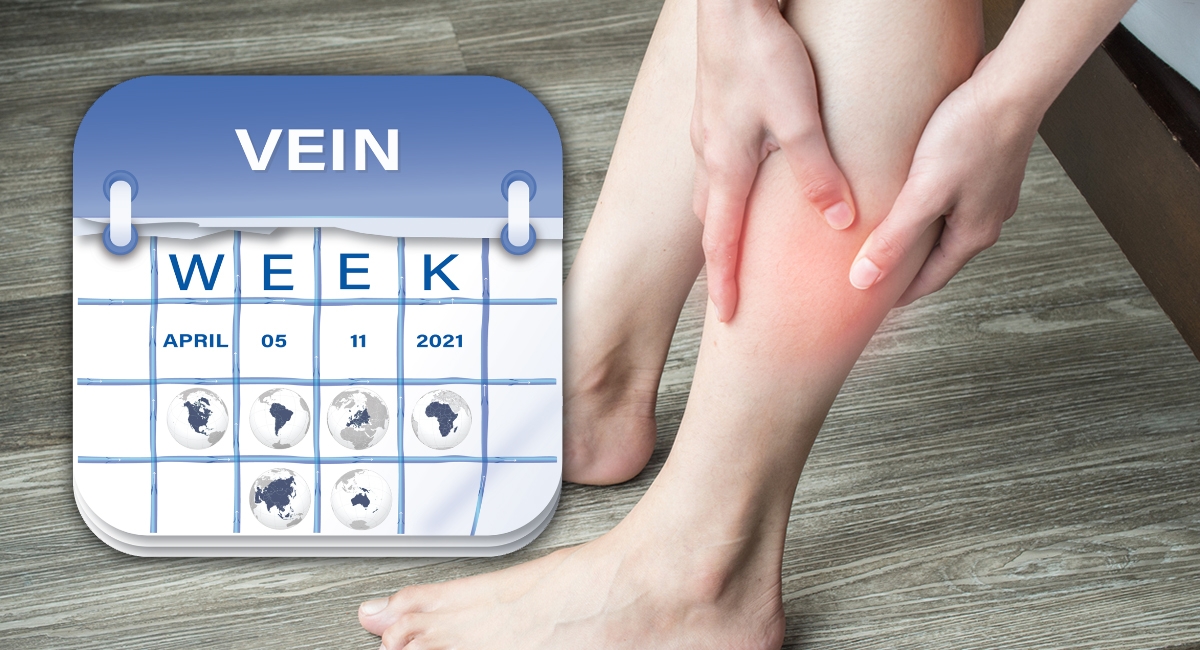
First International Vein Week aims to improve vein health
April is dedicated to many health-related awareness campaigns but this year marks the first time Vein Week will join the roster. Held in collaboration with the vWin Foundation from April 5-11, Vein Week is global event that Canada will participate in.
Dr. Mandy Wong, president of the Canadian Society of Phlebology, along with the executive committee are excited to take this opportunity to raise awareness of venous and lymphatic diseases that are common in Western countries.
Phlebology, or the field of medicine specializing in venous and lymphatic disease, is a growing medical speciality. Though the field is commonly associated with treatment of displeasing, dilated veins under the skin for aesthetic reasons, it is far more important than that.
“We analyze the condition and functioning of the venous system and lymphatic vessels of the legs.” Dr. Wong explains. Not solely a cosmetic procedure, this analysis allows treatment of diseased (varicose) veins invisible to the naked eye. “These veins allow blood to pool in the legs and disrupt healthy flow of blood back to the heart.” Common symptoms include the sensation of heavy, tired, and aching legs as well at itching of the legs. But the longer such veins go untreated, the more dangerous they can become.
“The increased pressure in the venous circulation caused by varicose veins leads to further enlargement of existing varicose veins and production of new varicose veins.” Dr. Wong explains. Long standing varicose vein disease, known as chronic venous insufficiency, can result in skin breakdown in the legs and even venous ulcerations, a serious complication.
Aside from varicose vein disease, phlebologist have advanced knowledge of treatment management of venous malformations, lymphedema, lipoedema, and coagulation disorders causing venous thrombosis.
Some of the increased interest in phlebology spotlights pelvic varicose veins as the cause of pain many women experience with intercourse and menstruation as well as chronic pelvic pain. Pelvic varicose veins are often overlooked as the cause of the symptoms, leaving women no choice but continue to suffer. With increased awareness through Vein Week and other initiatives, such pain will be diagnosed more often and properly treated.
One in three people may have varicose veins unbeknownst to them. A true diagnosis of vein disease can only be made after a thorough ultrasound examination. Dr. Wong points out that making patients aware of measures that can reduce symptoms and progression is important. Veins never get better on their own—the problems only grow and worsen with time.
Simple measures and good lifestyle habits can help prevent vascular issues and help people improve the flow of blood flow to the heart. Exercises that involve contraction of the calf muscles like walking are one of the best things one can do for the circulation of blood in the legs. The regular use of compression stockings, particularly in pregnant women, is also recommended by many phlebologists. There are also over-the-counter venoactive drugs with a great degree of scientific backing which can help alleviate symptoms of varicose vein disease. It is best to ask your phlebologist for their recommendation.
Finally, COVID-19 has shown itself to affect veins and vein health. Thromboembolic venous diseases (like pulmonary embolism) are associated with those who have tested positive for the new coronavirus. About 25% of thromboembolic disorders will occur in the first week of the disease; this percentage can double in the second week. Not everyone that is infected will be overtly symptomatic, but the added risk of thromboembolism may still exist. It is therefore particularly important during the pandemic to double precautions and put into practice the preventative measures listed above.
Vein Week, both in Canada and worldwide, will spread awareness of vascular diseases and the importance of vein health. In doing so, the Canadian Society of Phlembology hopes to bring awareness to preventative measures, improve diagnosis of vascular disease, make treatment more possible for millions of people, and improve vascular health worldwide.








